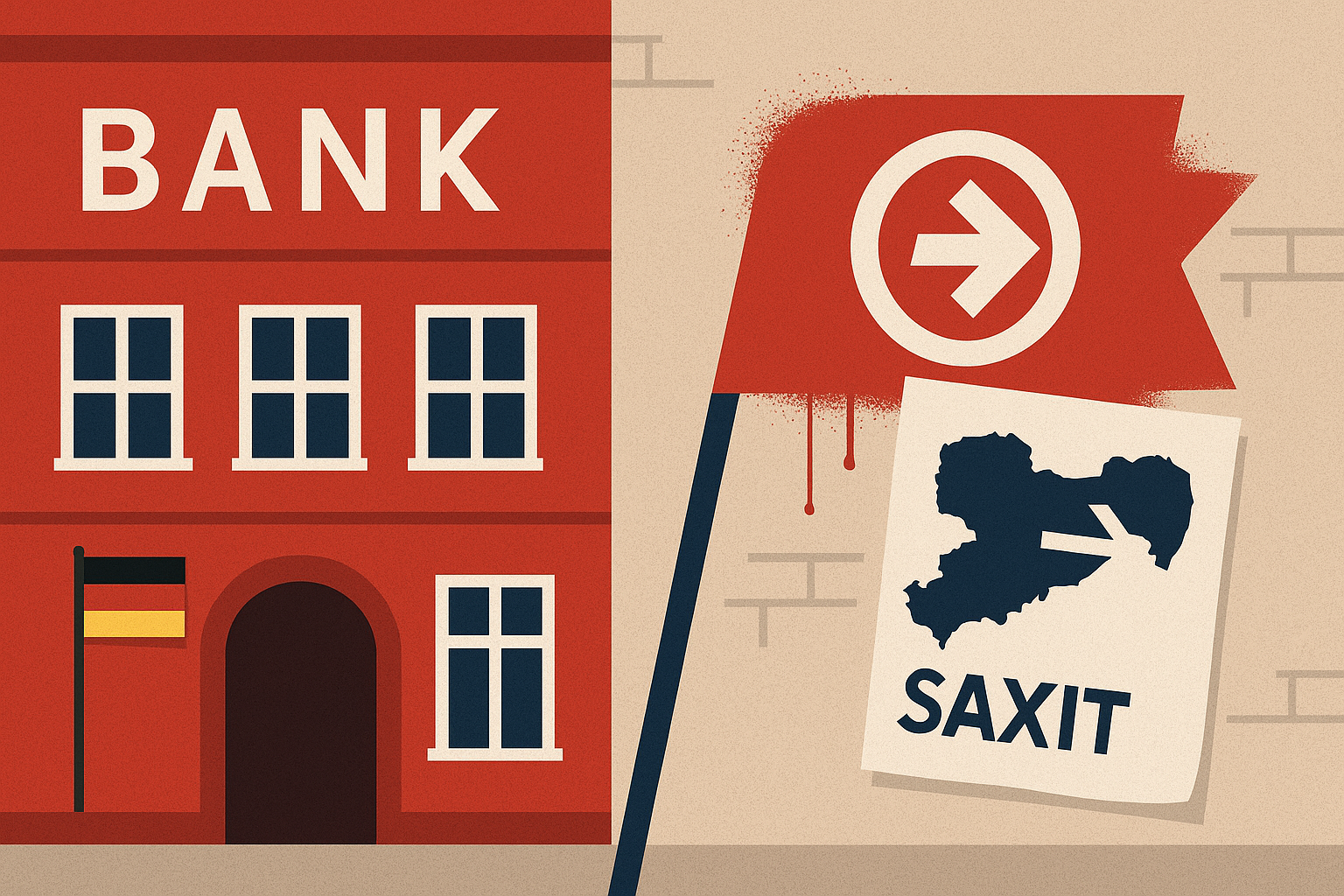A regional savings bank in eastern Germany has found itself at the centre of a national debate about the far right, financial services, and the limits of public institutions.
A Clash Between Law and Ethics
When the far-right Freie Sachsen party sought to open an account at Sparkasse Chemnitz in 2021, the bank initially refused. The decision was based on concerns for staff safety — many of its roughly 600 employees are immigrants — and a commitment to pluralism. “We are talking about [customers and staff from] 80 nations coming together here,” said Sven Mücklich, a member of the bank’s executive board.
But the refusal triggered a legal battle that highlighted the constraints public banks face in Germany. In 2018, the country’s constitutional court had ruled that Sparkassen, publicly owned community banks, must provide basic banking services to all political parties, including those under intelligence surveillance, unless they are officially banned. Earlier this year, a Chemnitz administrative court reaffirmed that ruling, stating that simply managing an account does not infringe upon staff rights.
Symbolic Resistance
With no legal path to deny the account, Sparkasse Chemnitz has relied on symbolic measures to show resistance. The bank hangs banners supporting democracy and pluralism during right-wing demonstrations, and it has redirected fees paid by Freie Sachsen to local initiatives. Last year, account fees were donated to a project supporting gay refugees, and this year, management plans to back another pro-democracy program.
According to Mücklich, such steps have been well received by employees, even if they fall short of blocking the party outright.
Freie Sachsen and Political Context
Founded in 2021, Freie Sachsen advocates for Saxon autonomy, even suggesting a regional breakaway dubbed “Säxit.” The party, led by lawyer Martin Kohlmann, is under surveillance by domestic intelligence services and is widely labelled extremist. However, Kohlmann disputes this classification, claiming his party merely represents alternative political views.
Kohlmann himself remains a Sparkasse client after being dropped by other banks and insists his party requires access to financial services to manage more than €100,000 annually in donations and state subsidies linked to election results.
Broader Implications
The case reflects broader tensions in Germany as far-right parties, particularly the Alternative for Germany (AfD), gain influence across the east. With rising electoral success, AfD members are increasingly securing seats on Sparkasse supervisory boards, which are composed of local politicians. Analysts warn this could pose challenges for the neutrality of public banks in the future.
Michael Koetter of the Halle Institute for Economic Research noted: “At the moment, this is not yet a problem, but if the AfD’s successes continue, it could become one.”
Between Obligation and Principle
For Sparkasse Chemnitz, once known for its ironic use of Karl Marx as a mascot and even issuing a credit card featuring his image, the situation underscores the tension between legal obligations and ethical principles.
Mücklich summed up the dilemma: “The court effectively told us we can only deny service once the employees are already standing at the door with packed suitcases.”
For now, the bank remains legally bound to serve Freie Sachsen, while continuing to find symbolic ways to reinforce its commitment to democracy and social responsibility.








